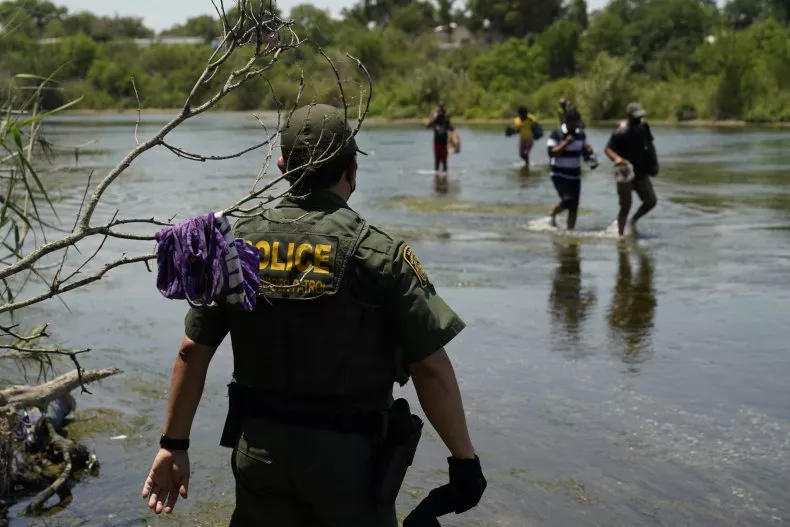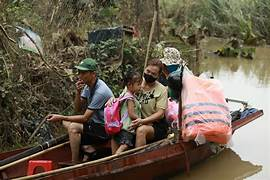Vulnerable and Voiceless

The harrowing journey of unaccompanied migrant children is one of the most pressing humanitarian issues of our time. These children, fleeing violence, poverty, and persecution, face dangers that no child should ever encounter. Yet, despite growing awareness and numerous pledges of support, systemic failures continue to exacerbate their plight. The ongoing failure to adequately protect these vulnerable minors highlights a profound moral and legal crisis that demands urgent attention.
Table of Contents
Vulnerable and Voiceless The Vulnerability of Unaccompanied Minors
Unaccompanied migrant children are among the most vulnerable groups in the global refugee crisis. They embark on perilous journeys across borders without the protection of their parents or guardians, often falling prey to traffickers, exploiters, and other criminals. Their precarious situations are compounded by legal and bureaucratic hurdles that frequently result in prolonged detention, inadequate care, and insufficient access to education and health services.
In the United States, for instance, the number of unaccompanied migrant children arriving at the border has surged in recent years. Many of these children are fleeing violence in Central America, including countries like Honduras, El Salvador, and Guatemala, where gangs and extreme poverty create dire conditions. Once they arrive, they are placed into a complex immigration system that often fails to meet their immediate needs and long-term well-being.
Vulnerable and Voiceless Systemic Failures in Protecting Migrant Children
One of the most glaring failures is the inadequate and often inhumane detention conditions that unaccompanied minors endure. In the U.S., for example, reports of overcrowded facilities, insufficient food and medical care, and inadequate psychological support are disturbingly common. These conditions not only violate international standards of human rights but also inflict lasting trauma on children who are already in a fragile state.
Moreover, the legal and procedural systems designed to protect these children frequently fall short. The U.S. Immigration and Customs Enforcement (ICE) and other agencies are tasked with the oversight of these cases, yet their processes often lack transparency and efficiency. Children are sometimes placed in detention centers for extended periods due to slow legal proceedings and bureaucratic red tape. The prolonged uncertainty and instability can severely impact their mental health and development.
International law recognizes the special needs of unaccompanied migrant children. The United Nations Convention on the Rights of the Child (CRC) and other international frameworks mandate that children in such circumstances should receive special protection and care. Despite these clear directives, the gap between these legal standards and actual practice remains wide.
Countries that have ratified these conventions, including the United States, have a legal obligation to ensure that the rights of unaccompanied minors are upheld. This includes the right to a fair legal process, adequate living conditions, and access to education and healthcare. However, compliance with these standards is often inconsistent, and enforcement mechanisms are weak.
Vulnerable and Voiceless The Human Cost of Inaction
The human cost of failing to protect unaccompanied migrant children is profound. These children are not only at risk of immediate harm but also face long-term repercussions. Many suffer from severe psychological trauma, including post-traumatic stress disorder (PTSD), depression, and anxiety. Their interrupted education and unstable living conditions can hinder their future opportunities and integration into society.
The impact of these failures extends beyond the children themselves. It affects communities and societies at large. A generation of traumatized and marginalized children can contribute to broader social instability and economic challenges. Addressing their needs is not only a moral imperative but also a practical necessity for fostering a stable and just society.
To address the ongoing failure to protect unaccompanied migrant children, a comprehensive reform is necessary. This reform should encompass several key areas:

- Improving Detention Conditions: Immediate reforms are needed to ensure that detention facilities meet humane standards. This includes providing adequate food, medical care, and psychological support. Alternative measures to detention, such as family-based or community-based care, should be explored and expanded.
- Streamlining Legal Processes: Legal processes for unaccompanied minors should be expedited to reduce the time they spend in detention. This includes improving the efficiency of immigration courts and ensuring that children have access to legal representation and advocacy.
- Enhancing Support Services: Comprehensive support services, including mental health care, educational opportunities, and social integration programs, must be made available to unaccompanied minors. Partnerships with non-governmental organizations and community groups can help provide these services.
- Strengthening International Cooperation: Countries must work together to address the root causes of migration, including violence and poverty in source countries. International cooperation and aid can help stabilize these regions and reduce the need for dangerous migration journeys.
- Ensuring Accountability and Oversight: Governments and agencies responsible for the care and protection of unaccompanied minors must be held accountable for their actions. Independent oversight mechanisms can help ensure that standards are met and rights are protected.
Vulnerable and Voiceless Conclusion
The ongoing failure to protect unaccompanied migrant children is a grave injustice that reflects broader issues within our global systems. Addressing this crisis requires a commitment to upholding human rights, reforming legal and procedural frameworks, and ensuring that vulnerable children receive the care and protection they deserve. By taking decisive action, we can begin to rectify these failures and build a more just and compassionate world for all children.







